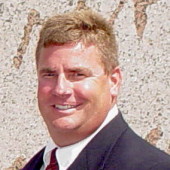School Life: Camden addresses suicide, looks to educate community
By Corinne Saunders
The Daily Advance Staff Writer
Monday, April 20, 2015
CAMDEN — Following the suicide of an eighth-grade Camden Middle School student in early January that rocked the small community, Camden County Schools is stepping up education on the issue for students, parents and area residents.

HAWKINS
The issue is “on the front burner” and must be addressed, Superintendent Melvin Hawkins said.
“We think it can’t be me, my family (or) my community,” Hawkins said. “Yes it can. We need to educate everybody about the resources available.”
Keith Hamm, supervisor of the Mobile Crisis of the Albemarle Area, told the Camden school board during its meeting last Thursday night that the services his unit provides are free of charge, even if the student or their family is uninsured.
In 2014, the unit responded to 18 calls in Camden County Schools, and that doesn’t include responses to students and their families that took place outside of school buildings, Hamm said.
“Oftentimes the students are having a great deal of stress and anxiety because of something in the home,” he said.
For that reason, staffers go into the home and “walk alongside” the entire family, pairing individuals with appropriate therapists if needed, and effectively preventing many psychiatric hospitalizations, incarcerations and other crises, Hamm said.
Mobile unit staffers are on call 24/7 and can respond at school even if guidance counselors have not been successful in contacting children’s parents, he said.
This week, Mobile Crisis staffers will give awareness talks to district middle school students in small groups, and also present to high school students during an assembly, Hamm said.
“Our students, our kids — they are under unprecedented pressure,” he said. “It’s astonishing.”
Even a young public school counselor told him that today is “nothing like” when she’d gone to high school five or six years ago, he noted.
Hawkins said that the school district has seen at least one tragic death of a student in each of the three past years.
The mental health problem, such as suicide, is “way too common and not the right way to solve issues,” Hawkins said, opining that not enough has been done nationally to address the topic.
“I don’t want to see any student resort to cutting…pills, alcohol or any other means to deal, or to think they have to deal with situations alone,” Hawkins said.
Last month, the district provided an in-house training on suicide awareness to its staff members, which Donald Martin, director of the Optima Employee Assistance Program, led.
Mobile Crisis will provide a talk on the same topic on May 5 at 6 p.m. at the high school, and that will be open to students, parents, and the greater community, even outside of Camden County, Hawkins said.
The school board on Thursday approved Hawkins’ request to ask the county to fund additional personnel to better address students’ physical and emotional wellbeing in the upcoming school year. Those positions include an additional school counselor, school nurse, a school social worker, a certified athletic trainer and a second assistant instructor for the Junior Leadership Program.
Camden currently does not employ a school social worker, but school board members spoke with Kelsey Seibert, guidance counselor at Currituck County High School about her view on the benefits of having them at schools.
Seibert said that she works intimately with Alysia Mizelle, a school social worker who is one of two serving Currituck schools, and that having that “direct line” of communication with the Department of Social Services is a great asset.
School guidance counselors have their hands tied in some situations; they are not allowed to put students in their vehicles or to provide any sort of therapy, for example, she said.
Mizelle, however, has more flexibility, and has driven students home as some situations require. Her salary is split 50/50 between the state and school district, Seibert explained.
Board Chair Christian Overton asked how effective the social worker was “in preventing crisis up to the point of death,” and Seibert said that’s hard to say.
“She’s alerted me to kids” that would be potentially suicidal, Seibert noted.
“The more people you have like that in your district, the more kids are going to get seen (and) the more kids are going to get helped,” she opined.
Overton asked which school age group she thinks needs a social service worker the most, and Seibert replied, “The little ones.”
High school students can choose to spend the night elsewhere if a home situation is escalating, but 5- and 6-year-olds can’t do that, she explained.
Elizabeth City-Pasquotank Public Schools also has two social workers on staff, but they are based at the Edgewood Support Services office and the district pays the full cost of their salaries, according to district spokeswoman Tammy Sawyer.

